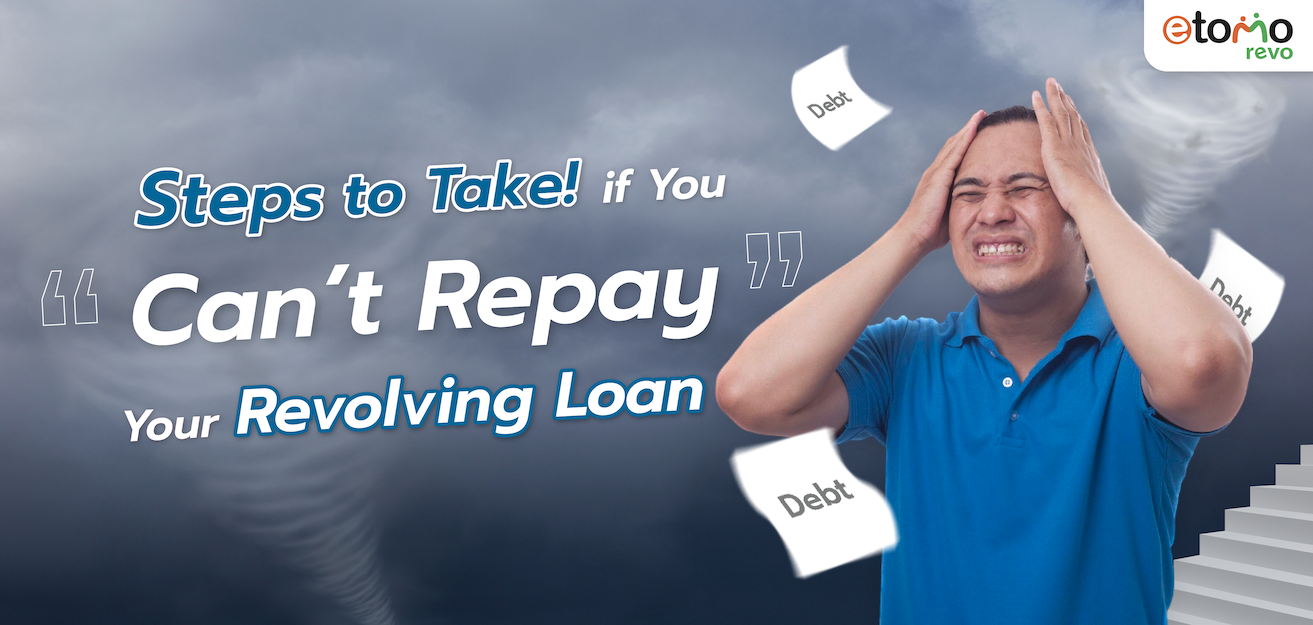Managing debt can be challenging, and sometimes unforeseen circumstances make it difficult to repay a revolving loan. If you find yourself unable to meet your repayment obligations, it’s crucial to take proactive steps to address the situation. Here’s a guide to help you navigate this challenging time:
1. Assess Your Financial Situation
- Create a Detailed Budget: List all your income sources and expenses. This will help you understand your financial position and identify areas where you can cut costs.
- Prioritize Your Debts: Determine which debts are the most critical. Revolving loans often have higher interest rates, so prioritize them alongside other high-interest debts.
2. Communicate with Your Lender
- Contact Your Lender Early: As soon as you realize you can’t make a payment, reach out to your lender. The sooner you communicate, the more options you’ll have.
- Explain Your Situation: Be honest about your financial difficulties. Lenders may be willing to offer temporary relief or restructure your loan.
3. Explore Repayment Options
- Loan Modification: Ask your lender if they can modify the terms of your loan to make repayments more manageable.
- Forbearance or Deferment: Some lenders may allow you to temporarily suspend or reduce payments.
- Extended Repayment Plan: Request a longer repayment term to lower your monthly payments.
4. Consider Debt Relief Solutions
- Debt Consolidation: Combining multiple debts into a single loan with a lower interest rate can simplify payments and reduce costs.
- Credit Counseling: A credit counselor can help you create a plan to manage your debt and negotiate with creditors on your behalf.
- Debt Settlement: In some cases, negotiating a settlement with your lender for a lower amount than owed might be possible, though this can impact your credit score.
5. Legal Protections and Bankruptcy
- Know Your Rights: Familiarize yourself with your rights under consumer protection laws. In some cases, these laws can provide relief from debt collection harassment.
- Bankruptcy: As a last resort, bankruptcy can discharge or restructure your debts, but it has long-term consequences on your credit. Consult a bankruptcy attorney to understand the implications.
6. Adjust Your Financial Habits
- Cut Non-Essential Spending: Identify and eliminate unnecessary expenses to free up more funds for loan repayment.
- Increase Your Income: Look for additional income sources, such as a part-time job or freelance work.
- Build an Emergency Fund: Once you stabilize your situation, start saving for emergencies to avoid future financial crises.
7. Monitor Your Credit
- Check Your Credit Report: Regularly review your credit report to ensure that all information is accurate and up-to-date.
- Dispute Errors: If you find any inaccuracies, dispute them with the credit bureaus.
What Happens If You Can’t Repay Your Revolving Loan on Time
Failing to repay your revolving loan on time can have several serious consequences, both immediate and long-term:
- Late Fees and Penalties: Missing a payment often results in late fees, which can add to your overall debt burden. Some lenders also impose penalty interest rates, which are higher than the standard rate.
- Increased Interest Costs: If you only make the minimum payment or miss payments, the interest on your outstanding balance will continue to accrue, increasing the total amount you owe over time.
- Damage to Your Credit Score: Late or missed payments are reported to credit bureaus and can significantly lower your credit score. A lower credit score makes it harder to obtain new credit and may lead to higher interest rates on future loans.
- Collection Actions: If you continue to miss payments, your lender may turn your account over to a collection agency. Collection actions can include frequent calls, letters, and potential legal action to recover the debt.
- Potential Legal Action: In severe cases, lenders may sue you to recover the unpaid debt. If they win the lawsuit, they could obtain a court judgment against you, leading to wage garnishment or a lien on your property.
- Account Closure: Your lender may close your revolving credit account, preventing you from accessing additional funds. This can also affect your credit utilization ratio, further impacting your credit score.
- Difficulty Obtaining Future Credit: A history of late or missed payments can make it challenging to qualify for loans, credit cards, or other forms of credit in the future. Lenders view missed payments as a sign of financial instability.
If you find yourself unable to repay your revolving loan, it’s essential to take immediate action. By assessing your financial situation, communicating with your lender, exploring repayment options, and adjusting your financial habits, you can manage your debt more effectively and work towards financial stability. Remember, seeking professional advice from a credit counsellor or financial advisor can provide additional support and guidance. Taking these steps can help mitigate the negative consequences of missed payments and put you back on the path to financial health.






